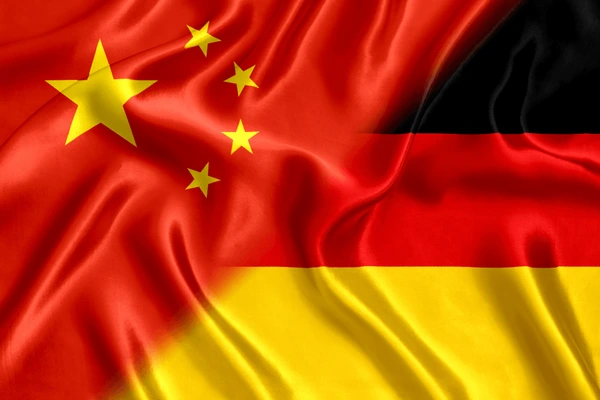
German Chancellor Olaf Scholz’s forthcoming three-day diplomatic mission to Beijing carries significant weight as Europe grapples with mounting trade imbalances, concerns over unfair competition, and heightened geopolitical tensions fueled by Washington’s pressures. In this intricate dance of diplomacy, Scholz’s visit becomes a pivotal moment for German policymakers, presenting both challenges and opportunities as they seek to safeguard economic interests while upholding democratic values and strategic autonomy.
The economic dimension looms large, as Scholz seeks to bolster trade ties and address concerns of unfair competition. Accompanied by a sizable delegation of ministers and business leaders, Scholz’s itinerary underscores the importance placed on economic relations. Visiting a hydrogen fuel cell plant in Chongqing, Scholz highlights Germany’s interest in emerging industries and its desire to tap into China’s economic growth.
Yet, beneath the surface of economic cooperation lies a complex web of trade dynamics. China’s ascendancy in certain export sectors has shifted trade balances, raising eyebrows and concerns among European policymakers. The surge in Chinese exports, coupled with perceived market barriers and industrial overcapacity, has fueled skepticism about the fairness of trade relations. In 2023, bilateral merchandise trade between Germany and China dropped by 8.7% from the previous year to US$206.8 billion, with China’s exports declining by 13% year-on-year to US$100.6 billion.
Trade forms the cornerstone of the agenda, as European businesses increasingly face hurdles in accessing the Chinese market. Persistent issues such as intellectual property theft, forced technology transfer, and opaque regulatory practices have long soured trade relations between the European Union (EU) and China. Moreover, the lack of a level playing field for European companies in sectors such as telecommunications and renewable energy exacerbates the sense of frustration among policymakers. The German Chamber of Commerce in China released a survey earlier this year, revealing that two-thirds of businesses questioned believed they faced “unfair competition.” Scholz’s mission underscores the urgency of addressing these grievances and fostering a more equitable trading environment.
Compounding these trade concerns is China’s ambitious Belt and Road Initiative (BRI), which has raised eyebrows in European capitals. While presenting opportunities for infrastructure development and connectivity, the BRI also carries risks of debt-trap diplomacy and unequal partnerships, prompting calls for greater transparency and sustainability in China’s overseas investments.
Scholz faces the delicate task of balancing economic interests with geopolitical realities. Amidst growing tensions between China and the West, particularly over issues such as Russia’s invasion of Ukraine and China’s assertiveness in the South China Sea, Scholz must navigate a path that upholds democratic values while engaging pragmatically with Beijing. Emphasizing the importance of dialogue and cooperation, Scholz aims to persuade Chinese President Xi Jinping to play a constructive role in resolving the Ukraine crisis and de-escalating tensions in the Asia-Pacific region. Germany finds itself torn between its commitment to democratic values and the pragmatic necessity of engaging with China on economic and strategic fronts. The question of how to balance economic interests with political principles looms large over the visit.
Addressing these trade and political concerns requires a nuanced and multifaceted approach from German and European policymakers. On the trade front, there is a pressing need to advocate for fairer market access, stronger intellectual property protection, and more transparent regulatory frameworks. This necessitates leveraging multilateral platforms such as the World Trade Organization (WTO) to push for reforms and establish clear rules of engagement that benefit all parties. Furthermore, diversifying Germany’s economic relationships and reducing dependence on China could mitigate risks associated with asymmetric interdependence. Strengthening trade ties with other Asian partners, such as Japan, South Korea, and India, presents viable alternatives and expands market opportunities for European exporters.
Politically, German leaders must engage China from a position of unity and strength, coordinating closely with transatlantic allies to amplify their collective voice on issues of mutual concern. This entails adopting a principled yet pragmatic approach that combines targeted sanctions with constructive dialogue, aiming to encourage China to adhere to international norms and respect human rights.
However, Scholz’s diplomatic overtures risk drawing criticism from Western allies wary of Beijing’s expanding influence and assertive behavior. The United States and European Union have ramped up scrutiny of China’s trade practices and technological ambitions, signaling a growing consensus on the need to rebalance economic relations. As Scholz seeks to strengthen ties with China, he must also reassure allies of Germany’s commitment to shared values and collective security.
In this intricate geopolitical landscape, Scholz’s visit serves as a litmus test for Germany’s foreign policy approach. Striving to maintain a delicate balance between economic interests and geopolitical realities, Scholz seeks to assert Germany’s influence while avoiding over-dependence on China. Moreover, investing in critical infrastructure, technology, and innovation emerges as a key strategy to enhance Germany’s competitiveness and resilience in the face of global challenges. This requires fostering closer collaboration between the public and private sectors, as well as promoting research and development in strategic industries to maintain Germany’s technological edge. By fostering a principled yet pragmatic engagement with Beijing, Scholz aims to safeguard Germany’s economic prosperity and strategic autonomy in an increasingly interconnected world. As he navigates the complexities of trade dynamics and geopolitical pressures, Scholz’s mission underscores the importance of diplomacy, dialogue, and strategic foresight in shaping Europe’s relationship with China.
By The European Institute for International Relations















